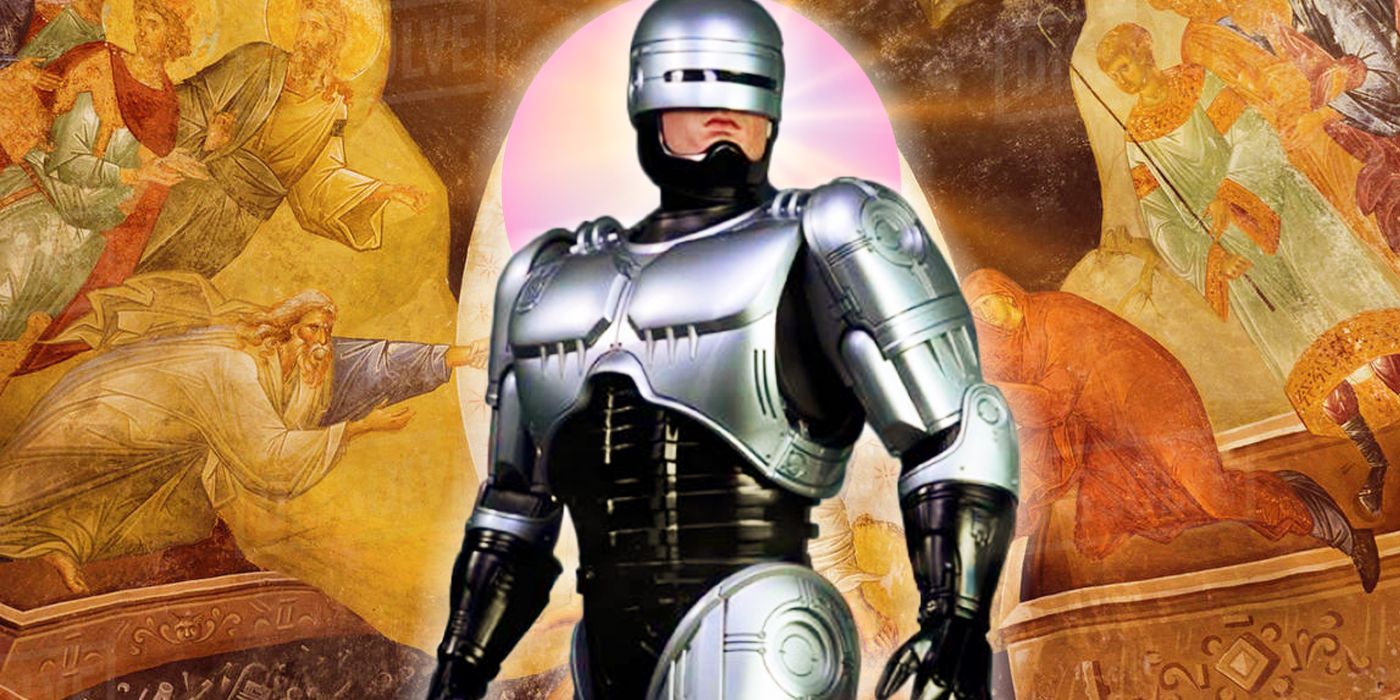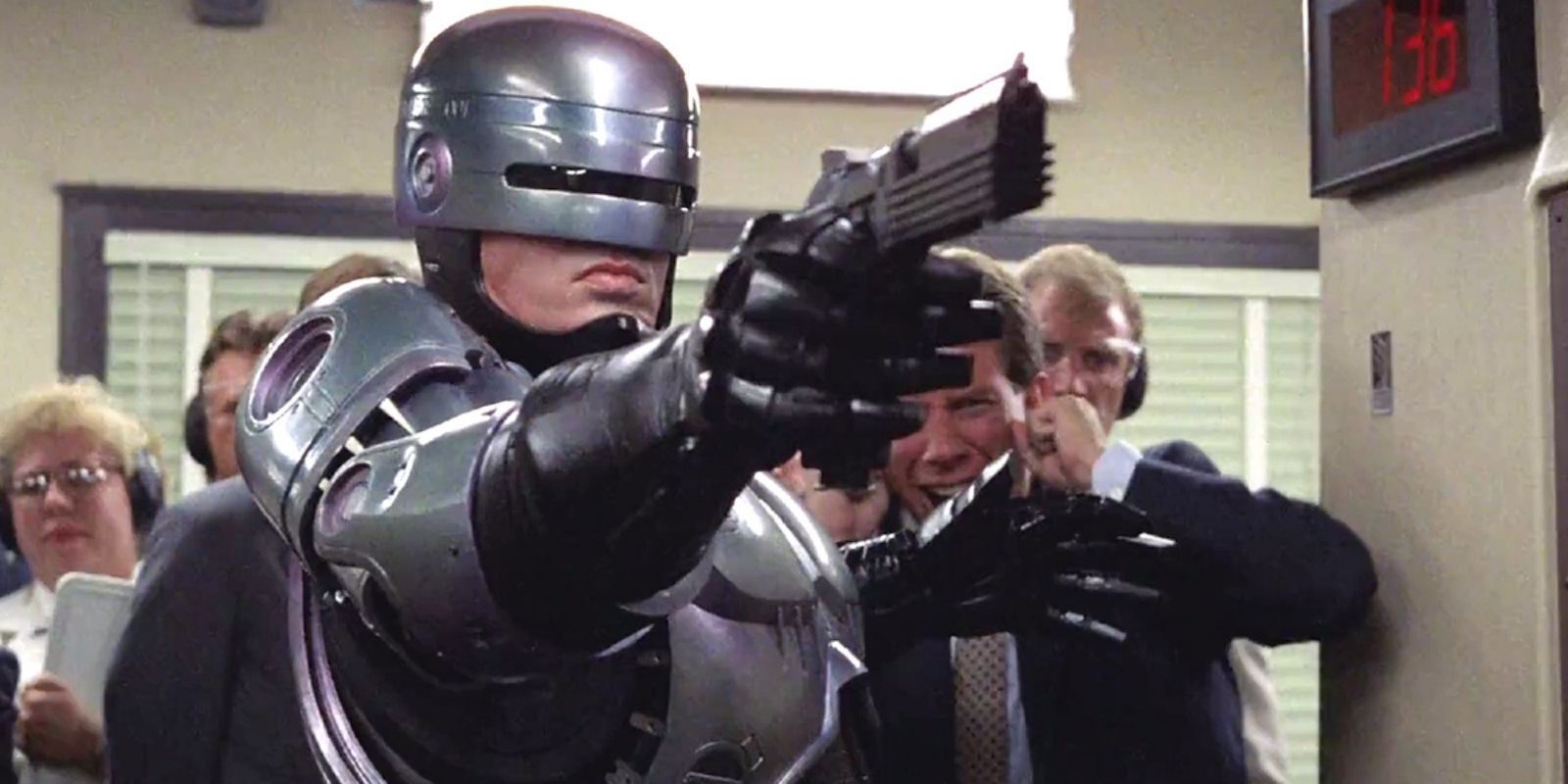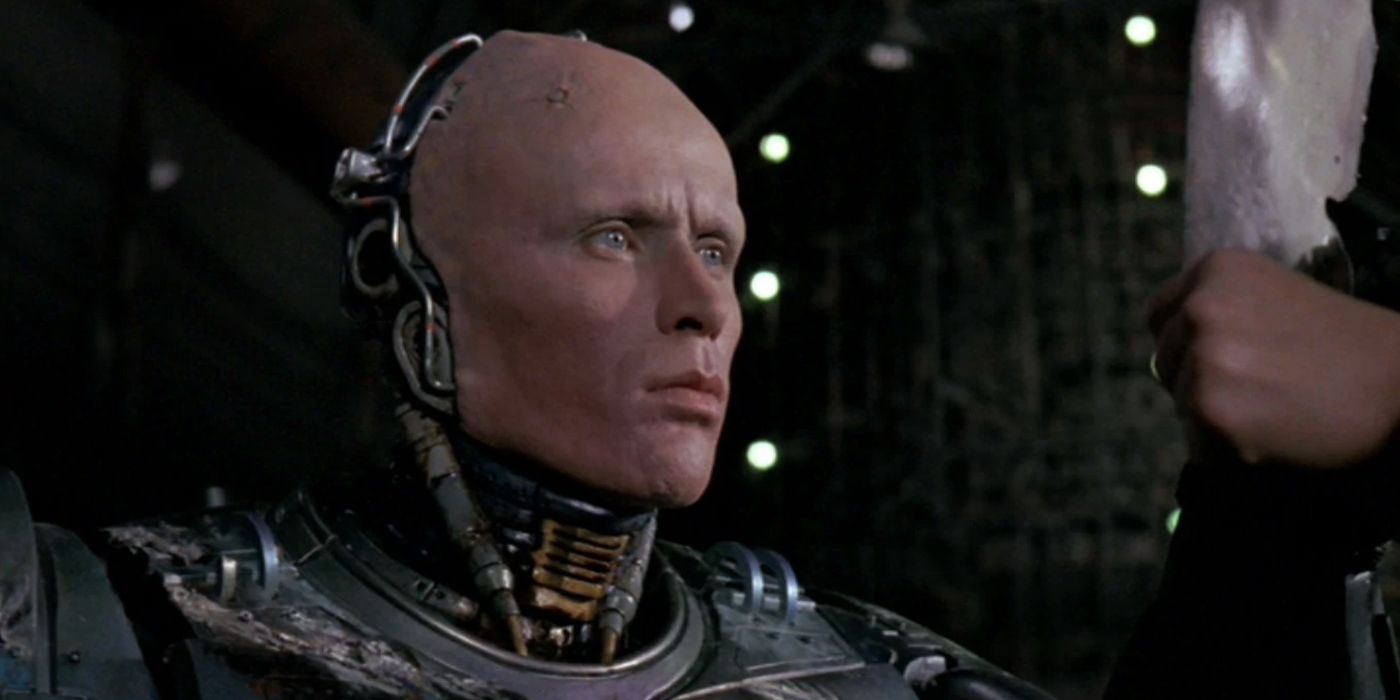Perhaps no movie represented the 1980s' obsession with mass consumerism, grungy streets and hyper-violence than RoboCop. The iconic action flick's crime-fighting was full of grit and grime, presenting a sort of dark version of concepts like Inspector Gadget. Beyond commenting on the events of the era, however, the original RoboCop movie also had a surprising religious inspiration.
Beyond the dirt, corruption and violence of 1980s Detroit, the director of the first RoboCop was inspired by Jesus Christ and utilized blatant Christian imagery. This succeeds in some areas of the film in retrospect, but it's also incredibly on the nose, especially as the series progresses. Despite that, it's not the only example of overlaying Christ imagery onto unrelated characters. Here's how Detroit's technological finest showcased similar themes to Jesus of Nazareth.
The Passion of the RoboCop
The story of both the first RoboCop movie and the subsequent remake involves a police officer named Alex Murphy, who is violently killed in the line of duty in Detroit. He's then rebuilt by Omni Consumer Products as RoboCop, a technological cyborg police officer dedicated to keeping the peace in the city. As mentioned, his original death as Murphy is incredibly brutal, with the gruesome content almost being too violent to receive even an R rating.
In a 2010 interview concerning the movie and its then-upcoming remake, the original movie's director Paul Verhoeven discussed some of the ideas that went into making the first RoboCop. Strangely enough, given the movie's themes and content, one of the biggest influences on the narrative was none other than Jesus Christ himself. Here's what Verhoeven had to say on the matter:
"The point of 'RoboCop,' of course, is it is a Christ story... It is about a guy that gets crucified after 50 minutes, then is resurrected in the next 50 minutes and then is like the super-cop of the world, but is also a Jesus figure as he walks over water at the end."
How Robocop Succeeds and Fails as a Christ Allegory
To be fair, the way that this is all said seems almost tongue in cheek on Verhoeven's part, which fits the satirical nature of the movie itself. The idea of RoboCop being a Christ allegory, however, can be explored further, though to varying results. RoboCop is indeed seen as a sort of savior to the crime-ravaged Detroit. Likewise, Murphy isn't an old man before becoming RoboCop, making his age somewhat analogous to Jesus'.
Things start falling apart afterward in terms of a one-to-one comparison. For instance, if Murphy's death is the Crucifixion, then is his later beating as RoboCop a second Crucifixion? Likewise, his having a wife and family makes this comparison fall apart further, especially as he tries to reunite with his old life in the second movie. While the replacement RoboCop 2 can be seen as a sort of "false prophet," this fits more with the idea of the Biblical golden calf than anything directly related to Jesus. Also given how little of his "message" of hope is truly his own words, it's a bit hard to see RoboCop as an individual professing some type of message like Jesus.
Other films have tackled the ideas of their heroes being Christ figures, using ostensibly religious imagery. For instance, despite Superman being created as a science fiction Moses, his cinematic variations, namely the Henry Cavill version in the DC Extended Universe movies, dot the screen with Christian imagery. This includes, of course, his spreading a message of hope to inspire humanity as well as the sometimes outright posing with outstretched arms as if crucified. His "crucifixion" at the hands of Doomsday and being cradled by Lois Lane, à la The Pietà, make this even stronger, especially when compared to the flimsy Christ-imagery of RoboCop. Unfortunately for the future of law enforcement, his story wasn't quite a Biblical epic.



